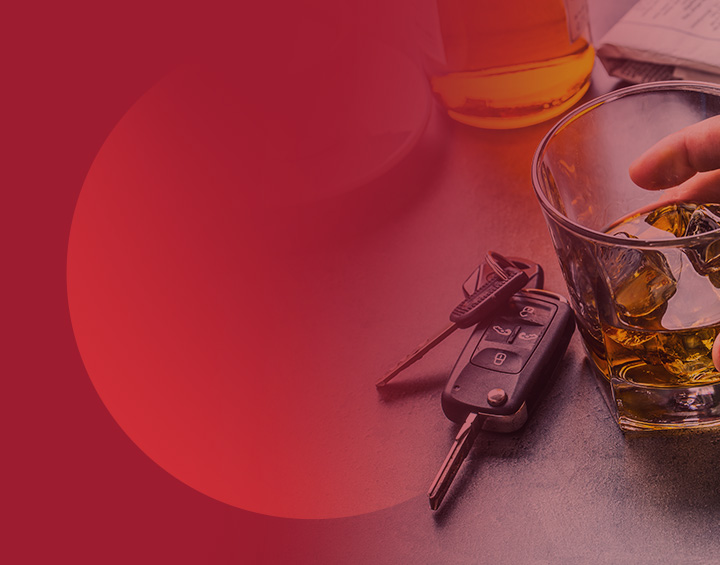
Breath Tests in Oklahoma DUI Cases
DUI Defense Lawyers Prepared to Contest Breath Test Results in Oklahoma
Oklahoma law enforcement officers are not authorized to administer chemical blood alcohol content (BAC) tests for no reason during a traffic stop. Police must first have sufficient cause to believe you were driving or in actual physical control of a vehicle while under the influence before they may place you under arrest for DUI or APC.
Oklahoma’s implied consent law triggers once you are placed under arrest. The officer should read you a statement that asks if you will submit to a chemical test to determine BAC. This test may involve your breath, blood, or urine, though breath is the most common. Although you do have the option to refuse, it is generally better to take the test.
If you have been charged with DUI and submitted to a breath test, we encourage you to get in touch with our team at Hunsucker Legal Group right away. Our attorneys are extremely knowledgeable in the technical aspects of BAC breath testing and are ready to fight for you to secure the best possible outcome in your case. We help hundreds of clients every year obtain positive results in their DUI cases, and we can put our experience to work for you.
Schedule a free, no-obligation consultation to learn more about how we can challenge breath tests in Oklahoma DUI cases. Call (405) 544-2992 or contact us online now.
What Is a Preliminary Breath Test, and Are These Tests Accurate?
Unlike the official breathalyzer-based chemical test given at the police station after your arrest, a preliminary breath test (PBT) may be given at the roadside prior to the officer arresting you. You should know that you are not required to take the PBT if an officer asks you to. Our general advice is that you should politely refuse this roadside test in most cases.
Preliminary or portable breath tests are notoriously inaccurate. It is well-documented that these machines are highly unreliable and often prone to both human and mechanical errors. Officers rarely take the time to calibrate the machines or observe the driver for 15 minutes prior to administering the test.
In fact, the unreliability of PBTs is so well known that prosecutors and police officers are not even allowed to mention them in court. The result of a PBT is not admissible as evidence in a DUI trial.
If you were arrested for DUI and submitted to a preliminary breath test, contact our team at Hunsucker Legal Group immediately. Our seasoned lawyers can work to suppress the PBT result and work to obtain the best possible result in your case.
What Breathalyzers Does Oklahoma Use and How Do They Work?
The state of Oklahoma tends to use the Intoxilyzer 8000 to conduct breath tests for BAC. This machine is also referred to as the “breathalyzer.” The 8000 model has been around for over 10 years. New and improved models, such as the Intoxilyzer 9000, have since been released. However, Oklahoma does not use the latest 9000 model and still relies on the older 8000 models.
Essentially, the Intoxilyzer 8000 is a computer that is based on very old technology. It utilizes a Z-80 microprocessor, which was introduced in 1975 – over 30 years ago. This is the same microprocessor that was used in the very first home computers in the early 1980s.
The machine works on the theory of infrared absorption. Basically, a light bulb is positioned at one end of a breath capture cylinder. When a person blows into the machine, their breath enters this chamber, and light from the bulb shines through their breath. Filter wheels at the other end of the chamber begin spinning, while the infrared light causes any alcohol molecules to absorb light at a particular frequency. The machine then makes a mathematical conversion, which is displayed as a “blood alcohol content” percentage on the machine’s display.
How Reliable Are Oklahoma’s Breathalyzers?
Some suggest that the Intoxilyzer 8000 is inherently flawed and often produces readings that are falsely high. It has been argued that the 8000 models can misread other substances in the breath as alcohol, thereby giving inaccurate BAC readings.
This machine works on the assumption that everyone has a blood/breath ratio of 2100/1 – that is, 2100 parts of alcohol in the breath for every one part of alcohol in the blood. A person with a higher blood/breath ratio will not be adversely affected by this assumption. However, someone with a naturally lower blood/breath ratio will produce a reading higher than their actual BAC. There are documented cases of people with blood/breath ratios as low as 1100/1. It is also worth noting that Oklahoma law only requires the Intoxilyzer 8000 to perform within a plus or minus 10% accuracy rate.
The bottom line: If you are arrested for DUI, submit to a breathalyzer test, and blow a .08% or higher, you will face DUI charges – even if your true BAC was less than what the machine indicated. That’s why you shouldn’t wait to get advice from attorneys who have experience contesting the results of breath tests in Oklahoma DUI cases.
Strategies for Refuting Breath Test Evidence
Defending against DUI charges may involve challenging the validity of breathalyzer test results. These devices, while widely used, are not infallible and can produce inaccurate or unreliable readings in many circumstances. Our team has a comprehensive understanding of how breathalyzers used in Oklahoma work, the factors that can affect their accuracy, and the legal arguments that can be made to dispute their credibility. By carefully examining the administration of the test, the operation of the device, and any potential external influences, we can work to build a strong case that highlights errors or weaknesses in the prosecution's evidence.
Some of the strategies our attorneys may employ when challenging the results of breath tests in Oklahoma DUI cases include:
- Questioning the calibration and maintenance of the device. Breathalyzer machines require regular calibration and maintenance to function correctly. Devices that are not properly maintained or calibrated may produce inaccurate results. Checking the history of the specific device used, including maintenance logs and calibration records, can reveal whether equipment issues may have contributed to faulty readings. Evidence of poorly maintained devices could significantly undermine the reliability of the test.
- Emphasizing procedural errors by law enforcement. The accuracy of a breathalyzer result heavily depends on the proper administration of the test. Officers must follow strict procedures when conducting a breath test, including providing specific instructions and observing a required waiting period to avoid contamination from substances in the mouth. Any deviations from these protocols may cast doubt on the validity of the results.
- Identifying medical conditions or substances that can affect the results. Certain medical conditions, such as acid reflux or diabetes, can lead to false readings on a breathalyzer test. Additionally, substances like mouthwash or certain medications may influence the results by leaving trace amounts of alcohol in the mouth.
- Highlighting other environmental or technical factors. Environmental factors, such as interference from nearby electronic devices or exposure to volatile chemicals, can sometimes impact breathalyzer readings. Additionally, technical malfunctions, such as sensor errors, may lead to flawed results.
Don’t assume you have no defense just because you tested over the legal limit. We are available 24/7, so call (405) 544-2992 or contact us online to schedule a free, no-risk case consultation.

-
 DUI
DUI
PROCESS -
 SAVE YOUR LICENSE
SAVE YOUR LICENSE -
 DUI
DUI
FAQ'S
-
 ELITE DUI DEFENSE BACKED BY A POWERFUL TEAM John Hunsucker, Regent with the National College for DUI Defense, where he sits on the Board of Directors
ELITE DUI DEFENSE BACKED BY A POWERFUL TEAM John Hunsucker, Regent with the National College for DUI Defense, where he sits on the Board of DirectorsJohn is a nationally recognized DUI defense attorney and one of only 50 lawyers nationwide to earn Board Certification* in DUI Defense from the National College for DUI Defense. A former prosecutor, he uses his insider knowledge to build strategic, effective defenses. John and the team at Hunsucker Legal provide strategic, results-focused DUI defense throughout Oklahoma and beyond.
*The NCDD is the only organization accredited by the American Bar Association (ABA) to provide certification in the specialty field of DUI Defense Law.
-
 FIGHT FOR YOUR LICENSE Brian Morton, Former Assistant General Counsel for the Oklahoma Department of Public SafetyFocused solely on Driver’s License Defense, he fights tirelessly for the rights of our clients, using his unique perspective and expertise to secure the best possible outcomes. His in-depth knowledge of DUI law, including implied consent and prosecutorial tactics, makes him an invaluable asset to your case.
FIGHT FOR YOUR LICENSE Brian Morton, Former Assistant General Counsel for the Oklahoma Department of Public SafetyFocused solely on Driver’s License Defense, he fights tirelessly for the rights of our clients, using his unique perspective and expertise to secure the best possible outcomes. His in-depth knowledge of DUI law, including implied consent and prosecutorial tactics, makes him an invaluable asset to your case. -
 Client Reviews The staff are incredibly helpful and very friendly.
Client Reviews The staff are incredibly helpful and very friendly.The Hunsucker Legal Group is a good choice for anyone that is needing assistance with their case. They have fantastic communication skills and handled any questions or concerns with care and respect.
- Sergio F.
-
 Client Review Getting a DUI was extremely stressful, but Hunsucker took the stress out and handled everything.
Client Review Getting a DUI was extremely stressful, but Hunsucker took the stress out and handled everything.These people are amazing. They communicate with you and keep you informed on the entire process. I can't recommend them enough. True professionals, if you find yourself in my situation, Hunsucker is definitely the way to go. Brian and Doug explained everything up front and helped me through the entire process.




















.2502260919291.png)


